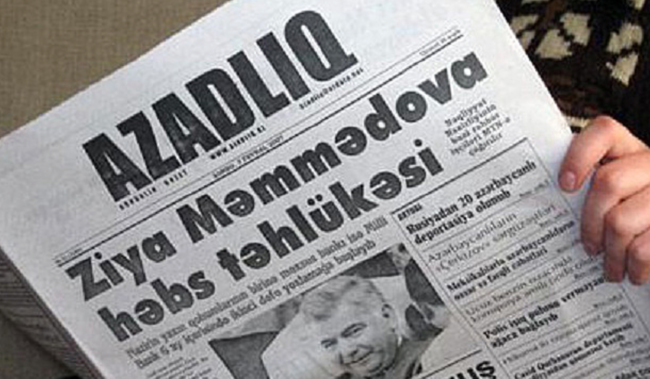
 The EU has denounced the decision by a court in Azerbaijan to permanently block five independent online media outlets critical of the government.
The EU has denounced the decision by a court in Azerbaijan to permanently block five independent online media outlets critical of the government.
The Sabail District Court in Baku decided on 12 May to block the websites of five media outlets, including the local RFE/RL online news outlet Azadliq, Meydan TV, Azerbaycan Saati, Turan TV, and the website of newspaper Azadliq (unrelated to RFE/RL).
The decision was ‘not in keeping with the need for free, diverse and independent media in modern and democratic societies’, Maja Kocijančič, a spokesperson for European Union Foreign Policy Chief Federica Mogherini, said in on 14 May.
The ruling came in response to a complaint by the Communications and High Technologies Ministry, which has limited access to the sites since 27 March through an order from the Prosecutor-General’s Office. The Prosecutor-General claimed that the outlets pose a threat to Azerbaijan’s national security.
‘We will appeal this verdict’
According to RFE/RL, they had been accused of ‘posting content deemed to promote violence, hatred, or extremism, violate privacy, or constitute slander’.
‘We will appeal this verdict’, Samed Ragimov, a lawyer for the blocked media outlets told the media. RFE/RL labelled the ruling ‘another blatant attempt’ to silence its reporting in the country.
RFE/RL is funded by the US government and broadcasts news and other programming in 26 languages in countries including Russia, Ukraine, and Afghanistan.
Human rights groups have also condemned the court’s decision. American rights group Freedom House criticised the decision, claiming that by banning independent media websites, the Azerbaijani government has ‘disproved President Ilham Aliyev’s most frequently used argument that Azerbaijan enjoys freedom on the internet’, according to Robert Herman, vice-president for international programmes.
Azerbaijan last year made online defamation of the president a criminal offence, punishable by imprisonment.
Freedom House rated Azerbaijan ‘not free’ in its Freedom of the Press 2017 report, and gave it a democracy score of 6.93, on a scale of 1 to 7, with 7 as the worst possible score, in its Nations in Transit 2017 report.




 15 May 2017
15 May 2017


